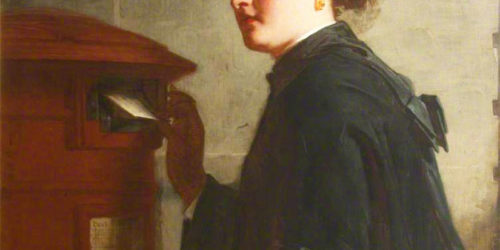Successful authors who started late
To inspire you, we’ve collated key authors who found writing success later in life. It’s never too late to write your magnum opus.
Italian words that English really needs
Italian rolls off the tongue and there are many fascinating words that aren’t directly translatable into English. Here are some of our favourites.
Writing tips from authors who didn’t mince words
Some writers didn't mince words when it came to advice. We'll highlight lesser-known quotes by writers who told it like it is.
A very Victorian guide to letter writing
Writing letters is becoming a lost art. But, in an era of “Zoom fatigue” and “doomscrolling”, receiving correspondence away from the screen can be a real delight. Why not learn from those who did it best?
The science of swearing
Why do we swear? We’ll outline some of the science behind swearing. Read until the end to find out how cursing could actually be good for you.
Forgotten festive English words we need to use this season
As a gift to our fellow word nerds, we’ve compiled some amazing and little-known festive English words.
New entries in the OED: March 2020
What are the latest entries to the OED in March 2020, and what do they mean? How do words get into the OED?
5 Shakespearean words we should use more often
You might be surprised about how many everyday words and phrases come from Shakespeare. But what about the less common words?
How to write a thank-you note
We might think we know how to give thanks. But, in this festive season, it’s important to brush up on our skills to show appreciation for the people in our lives. Here are some musts in a thank-you letter.
3 authors’ love letters to inspire you this Valentine’s Day
On Valentine’s Day, you can surprise your loved one with a handwritten letter. Let some of history’s most celebrated writers inspire you.
Do Inuits really have 50 words for snow?
The belief that the Inuit have dozens of different words for snow has become a widely known piece of linguistic trivia. But, where did this belief come from, and how close is it to the truth?
Festive children’s books we love
As we move toward the middle of December – already! – we’re thinking about festive children’s books we adore, from their stories to their wonderful illustrations. After all, children’s books are the most readable of all, and we’re all about encouraging children’s early learning.













